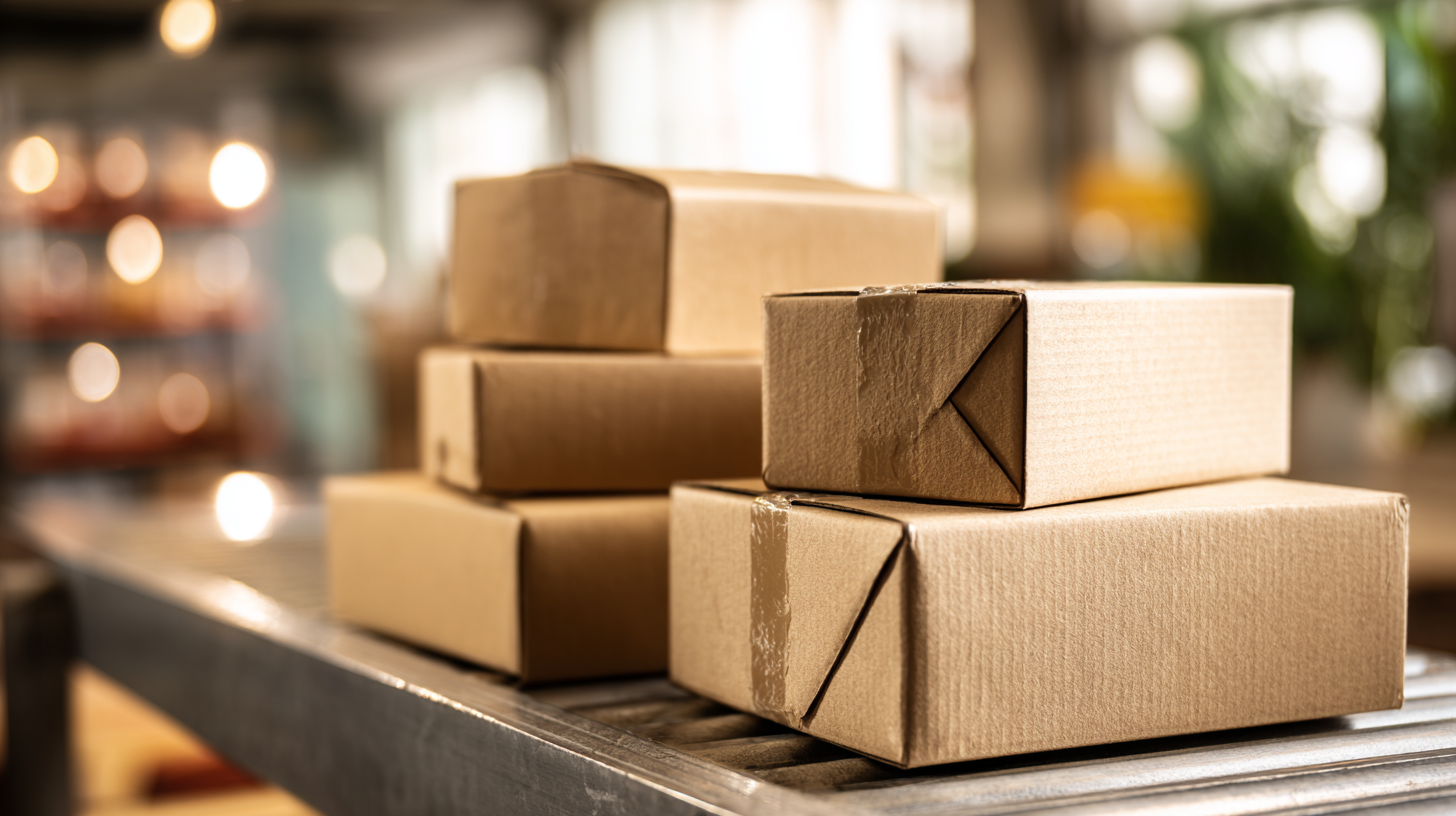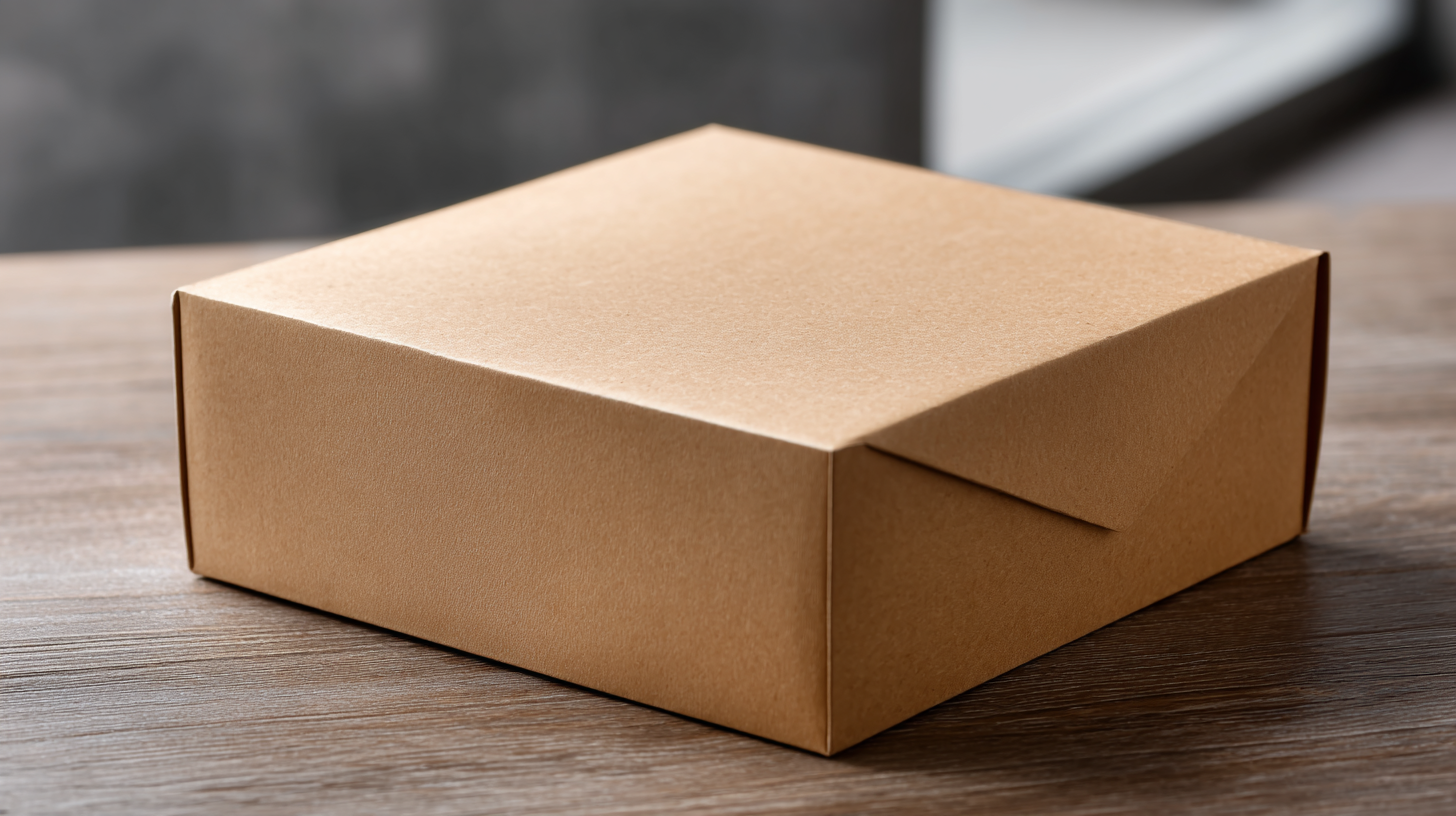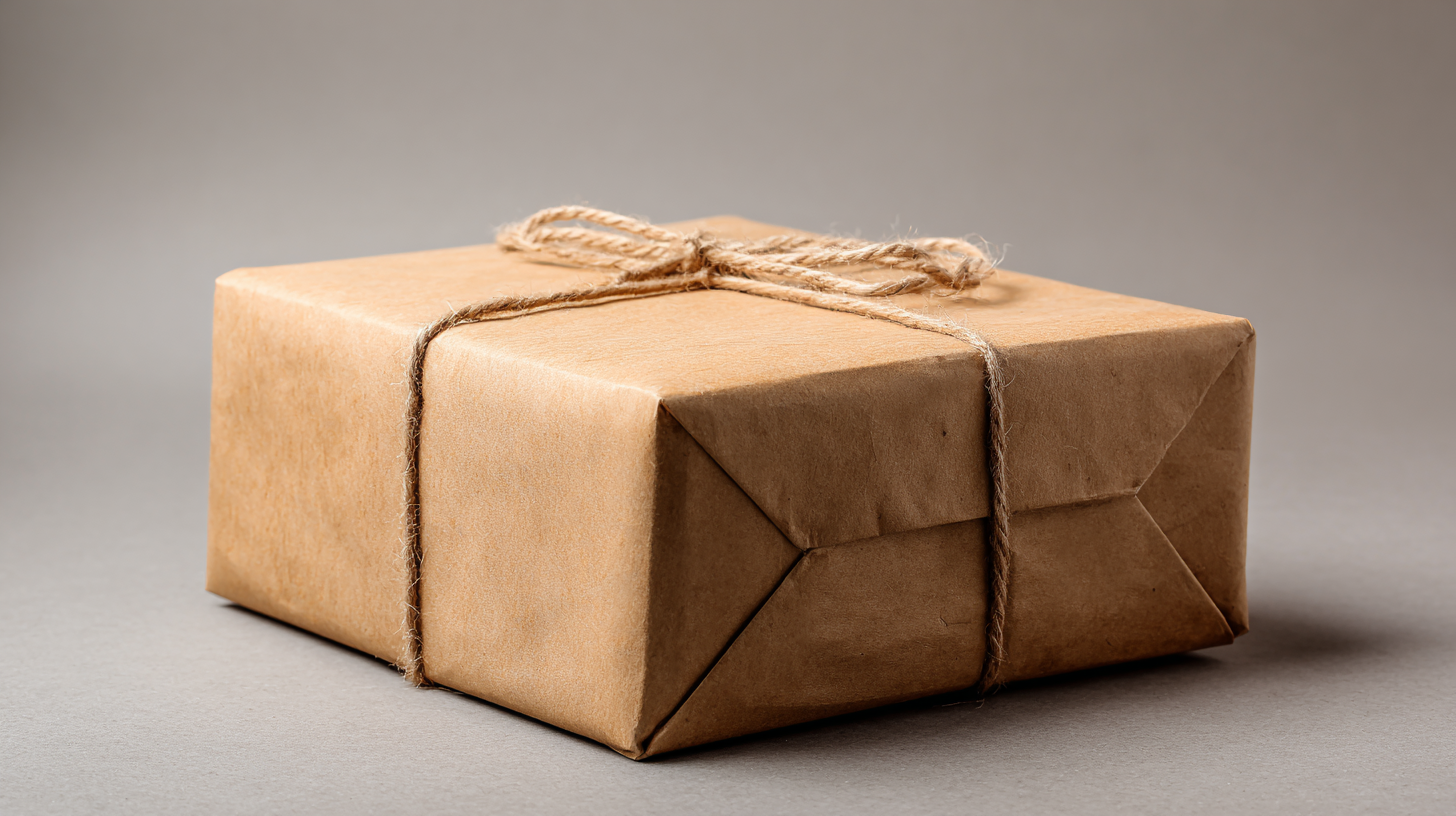In today's competitive market, choosing the right packaging can significantly impact your business's success and brand perception. One of the best options available is the Box Paper Package, which offers a blend of durability, versatility, and eco-friendliness. From product protection to enhancing customer experience, the benefits of a well-designed Box Paper Package are numerous. Whether you're a startup or an established company, understanding the nuances of packaging will enable you to make informed decisions that resonate with your target audience. In this blog, we will uncover five essential secrets to help you select the best Box Paper Package for your business, ensuring that your products are not only well-presented but also safe and sustainable. Join us as we explore how the right packaging can elevate your brand and contribute to your overall success.

When selecting the perfect box paper package for your business, it’s essential to understand the unique needs of your industry. For e-commerce, for instance, durable corrugated boxes are ideal as they provide excellent protection during shipping while being lightweight to reduce costs. Businesses in the food industry, on the other hand, often require packaging that meets health standards; options like biodegradable and recyclable materials not only comply with regulations but also appeal to environmentally-conscious consumers.
In the retail sector, custom printed boxes can enhance brand identity and create memorable unboxing experiences. Brands can use high-quality graphics and materials to boost product appeal and differentiate themselves from competitors. Additionally, industries like electronics benefit from specialized packaging designed to mitigate the risk of damage during transit. These tailored solutions highlight the importance of selecting box paper packages that align with both product requirements and consumer expectations across various sectors.
This chart illustrates the suitability of different box paper package alternatives for various industries based on a 1 to 10 scale. Choosing the right packaging material is crucial for business success.
In today’s market, eco-friendly packaging is not just a trend but a necessity as businesses increasingly prioritize sustainability. When selecting the best box paper package, it’s essential to evaluate materials that align with environmentally responsible practices. Recyclable and compostable options are gaining traction, particularly as consumers demand greener alternatives. Such choices not only reduce waste but also enhance a brand's image by demonstrating a commitment to the planet.
Interestingly, the growth of various packaging sectors reflects this shift towards sustainability. For instance, the aluminum foil packaging market is expected to grow significantly over the next decade, indicating a rising preference for materials that are both durable and recyclable. Similarly, the dairy packaging industry is experiencing a substantial increase, driven by innovations in sustainable materials. Businesses that embrace these eco-friendly packaging solutions position themselves at the forefront of sustainability trends, appealing to environmentally conscious consumers and fostering brand loyalty.
When it comes to selecting the best box paper packaging for your business, cost analysis is key. A recent study estimates that the Western Europe tinplate packaging market will see significant growth, driven by an increasing demand for environmentally friendly options. This surge emphasizes the need for businesses to weigh not only the upfront costs of various materials but also their long-term savings. For instance, investing in sustainable packaging may seem more expensive initially, yet it often leads to lower waste disposal costs and improved brand loyalty.
Tip: When evaluating box paper packaging, consider the total cost over the product's lifecycle. This includes the initial purchase price, disposal fees, and potential savings from returns and customer satisfaction. Additionally, materials like recycled paper or biodegradable options might incur some upfront costs, but they can provide significant long-term value due to decreasing waste impact and aligning with consumer preferences for sustainability.
Another crucial factor is the thickness of your packaging. According to industry analysis, thinner materials can reduce shipping costs but may sacrifice durability. Choosing the right thickness balances cost and protection.
Tip: Analyze your product's needs and market demands carefully. Opt for a thickness that ensures safe transport while keeping packaging costs in check. This strategic approach can lead to enhanced supply chain efficiency and customer satisfaction, ultimately boosting your bottom line.

Customization plays a pivotal role in box paper packages, significantly influencing how customers perceive a brand. When consumers encounter packaging that is tailored to reflect a brand's identity, it can foster a sense of connection and loyalty. For instance, incorporating unique designs, colors, and materials can make the packaging memorable, ultimately enhancing the perceived value of the product inside. This is particularly true in competitive markets, where first impressions help to differentiate a brand from its rivals.
To maximize the impact of customization, businesses should consider incorporating elements that resonate with their target audience. One tip is to use bespoke designs that tell a story related to the brand's ethos or product line. This narrative approach not only captures attention but also encourages customers to share their experiences on social media, amplifying the brand's reach. Additionally, using high-quality materials can elevate the unboxing experience, making customers feel special and appreciated.
Another essential tip is to ensure that the customization aligns with the brand's overall strategy. This includes consistent branding across all packaging types, which reinforces brand identity and builds recognition. Providing options for customers to personalize their packaging can also create a sense of exclusivity, enhancing their connection to the brand while encouraging repeat purchases.
 When selecting the right box paper packaging for your business, it is crucial to understand the regulatory landscape that governs this industry. In India, the offset packaging market is seeing significant growth, driven by various product types, notably boxes and cartons, which are essential for industries like food and beverages. With the food packaging sector alone reflecting a substantial market share, businesses must adhere to industry standards that ensure safety and sustainability in packaging materials.
When selecting the right box paper packaging for your business, it is crucial to understand the regulatory landscape that governs this industry. In India, the offset packaging market is seeing significant growth, driven by various product types, notably boxes and cartons, which are essential for industries like food and beverages. With the food packaging sector alone reflecting a substantial market share, businesses must adhere to industry standards that ensure safety and sustainability in packaging materials.
Recent advances in packaging technology indicate a shift towards biodegradable and recyclable materials, in response to increasing consumer demand for environmentally friendly options. Companies are responding to regulations concerning waste management, particularly important in avoiding pollution and safeguarding human health. For instance, treating, keeping, or disposing of waste improperly can lead to severe penalties and harm the reputation of a brand. Thus, choosing compliant packaging options not only aligns with regulatory requirements but also enhances brand credibility in a competitive market. Understanding these key industry standards is crucial for making informed packaging decisions that support both operational goals and sustainability objectives.
